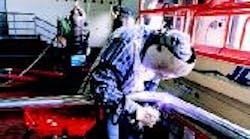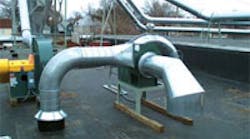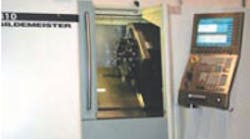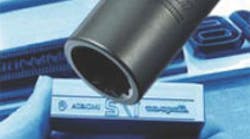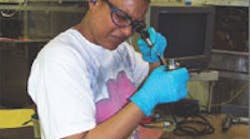About the size of a lunch box, the Maxstar is a portable welding machine that provides code-quality TIG welds.
Premier Technology of Pocatello, Idaho, is a mechanical-contracting firm specializing in food-processing customers. Since most food processors function in incredibly tight markets, Premier must perform all the work it possibly can during scheduled shutdowns, says John Echols, general manager of Premier. This includes welding. "Every hour and every weld counts," says Echols, "and production time costs thousands of dollars a minute." However, at one of its customer sites, unreliable welding power sources were slowing down the process.
In two years, 12 of 15 inverters at Jerome Cheese blew a board or failed in some way. "Every time a machine failed, and sometimes two would fail in the same week, it meant an operator might not complete a project on time," says Mark Bell, Premier's technology manager. "Fixing the boards typically takes more than five weeks and costs up to $1,200. To solve the problem, Premier switched from the existing welding power sources to the Maxstar 140, an ultra-light DC TIG/stick inverter from Miller Electric Manufacturing Co.
While small, the Maxstars create an arc suitable for almost every DC welding task at Jerome Cheese. Output for the units is 5 to 140 amp with a 100% duty-cycle rating at 100 amp using a 230-V input.
The inverters immediately reduced welding times because operators can move them throughout the plant easier than the original welding power sources. With an average operator overhead of $50 per hour, this eliminates 16 hours of time spent moving bulky machines. The Maxstar 140 weighs only 10 lb and accepts either 115-V or 230-V primary power. In addition, its Auto-Link feature lets users manually re-link the machine for different voltages without having to remove the unit's cover. "It's lightweight, durable, simple, easy to use, and quick," says Bell. "You can just throw the strap over your shoulder, grab a small bottle of argon, and go anywhere in the plant." The light weight reduces user fatigue — workers may weld for 7 hours out of a 10-hour shift.
Most of the TIG welds at the Jerome site involve butt welds on 304 stainless steel sanitary-process piping and stainless steel 316L chemical piping with diameters ranging from 1 to 6 in. and wall thickness of 0.065 to 0.085 in. These welds require 40 to 50 amp of heat using a 3 /32-in.- diameter, 2% thoriated tungsten. Pipe hangers are typically made from schedule-40 black iron and need about 80 amp of DC-TIG power, while a socket weld on schedule-80 high-pressure steam pipe and schedule-XX carbon-steel pipe for ammonia lines require stick welding.
"We can turn the Maxstar's heat up or down to accommodate most anything we encounter," says Bell. "We've TIG welded 22-gauge stainless steel sheetmetal, and stick welded mounts for an 80-hp motor located on the fifth floor of Jerome's whey dryer. These mounts require 100% penetration."
The Maxstar inverter also contributes to productivity because of its simplicity. Bell says that "TIG welding this type of process piping doesn't require controls for slope, pulsing, a spot timer, or high frequency. With the Maxstar 140, there's nothing to confuse an operator. All he does is set his amperage and start welding."
Miller Electric Manufacturing Co.
Appleton, Wis.
www.millerwelds.com
